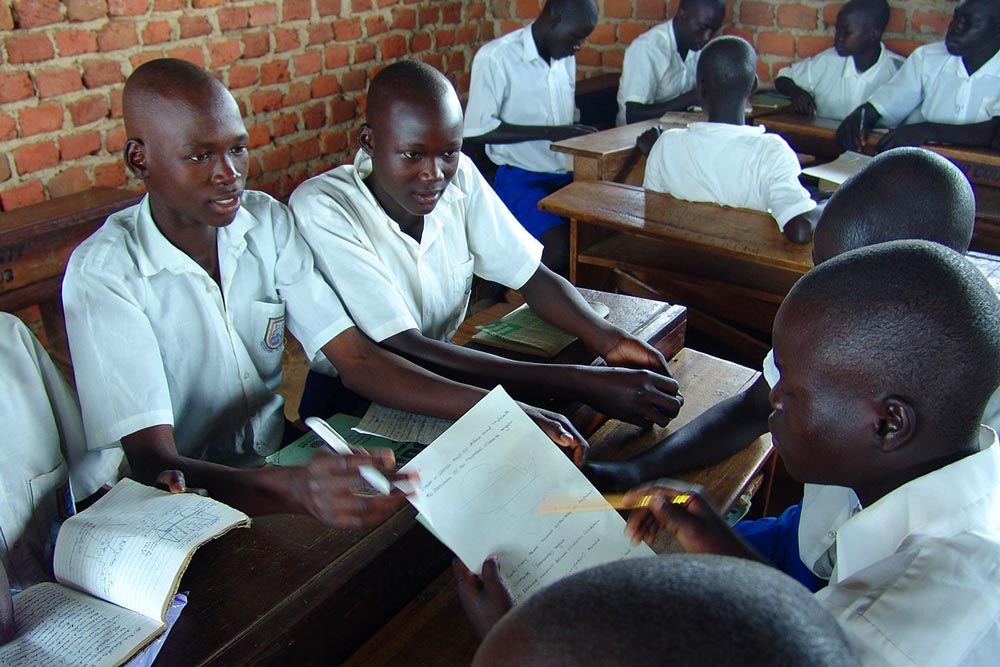
The cost of education in Uganda is not just a path to success—it’s often the only hope parents have for their children’s future. For many families, however, this hope is becoming a nightmare as school fees continue to soar. From hidden development charges to inflated PTA fees, private schools have become adept at extracting every penny from parents, often without any justification. Sarah, a mother of two in Kampala, had to take out a loan this year to keep her children in school. ‘I thought education was a right,’ she said, ‘but it feels more like a privilege for the wealthy.’
For many parents in Uganda, affording a quality education has become an unsustainable burden. The high and often arbitrary fees demanded by private schools, sometimes under dubious claims, have turned schooling into a lucrative business rather than the public good it once was. Development fees, for instance, are often added to fund new buildings, yet parents are rarely consulted or informed about the details of these projects. Furthermore, some schools impose additional costs, such as PTA contributions or examination fees, which frequently exceed the actual expenses the school incurs.
This exploitation of parents is apparent in private schools, where fees are often less regulated than in public institutions. The lack of transparency and accountability in fee structures has left many parents disillusioned, questioning the true motives behind these escalating costs.
While the Ugandan government has attempted to regulate this by introducing school fee-capping policies, the journey toward education affordability remains fraught with challenges.
In response to the overwhelming outcry from parents, the Ugandan government proposed the School Fees Regulation Policy, aimed at capping school fees for both private and government-aided schools. The policy, if implemented, would limit how much schools can charge, setting a maximum allowable amount. This would include caps on development fees and other non-tuition-related costs.
In theory, this regulation would help ensure that education remains accessible to all. According to the Ministry of Education, schools would be barred from charging beyond a set amount, with penalties for non-compliance ranging from monetary fines to suspension of operating licenses. The hope was that by enforcing a policy-driven ceiling on fees, education would become more affordable, relieving many Ugandan families from financial stress.
However, the policy has met strong resistance from private school owners. These proprietors argue that their operational costs, especially in a post-pandemic world, have increased significantly, and that capping fees would push them into bankruptcy. They also claim that the quality of education would deteriorate if they are restricted from raising fees to match inflation and other rising costs
The road to implementing the School Fees Regulation Policy has been far from smooth. The resistance from school owners highlights a larger systemic issue: a clash between free-market principles and the moral responsibility of making education accessible. Private school proprietors argue that their institutions should be viewed as businesses, where the forces of supply and demand determine the cost of education. The government, however, holds that education is a constitutional right and that it must be affordable, regardless of the institution’s ownership.
Further complicated by potential conflicts of interest, many of those involved in policy-making or regulation also own private schools or have stakes in educational institutions. This creates a dilemma, as some key players who are meant to advocate for fee regulations may instead have personal financial interests in maintaining the status quo. Without addressing these conflicts of interest, implementing and enforcing fees regulations will remain a challenge
A 2023 report by the Uganda National Parents’ Association revealed that some schools were charging as much as 2 to 3 million Ugandan shillings per term, far exceeding what most Ugandan families can afford. With these staggering amounts, even middle-income families are feeling the pinch, not to mention lower-income households.
The situation has sparked widespread calls for action from parents, civil society organisations, and the general public. Many urge the Ministry of Education to step up its efforts in implementing the School Fees Regulation Policy without delay. At the same time, there is an urgent need for increased transparency in how schools set and justify their fees.
Schools must be required to provide detailed breakdowns of their expenses, especially when requesting extra fees for development or PTA contributions. Such measures would promote accountability and give parents a clearer understanding of what they are paying for.
Additionally, there are increasing calls for the Ugandan government to invest more in public education to reduce the dependence on private schools. By improving the quality of public schools, the government could offer a viable alternative to parents who currently feel trapped by expensive private institutions.
Uganda’s education system stands at a crossroads. On one side are private schools that have transformed education into a high-cost industry, and on the other, a government striving to regulate fees to maintain education as a basic right. While the government’s intentions are commendable, implementation remains elusive, largely due to resistance from vested interests. For the sake of Uganda’s future generations, the government, educators, and parents must find common ground, ensuring that education remains a right and not a privilege.
Until then, parents in Uganda will continue to bear the brunt of exorbitant fees, facing an uncertain future where sending a child to school may be less about securing a bright future and more about battling a financial crisis.
Will the school fees regulation policy be actualised? Monitor.
Time to revisit school fees caps, Monitor